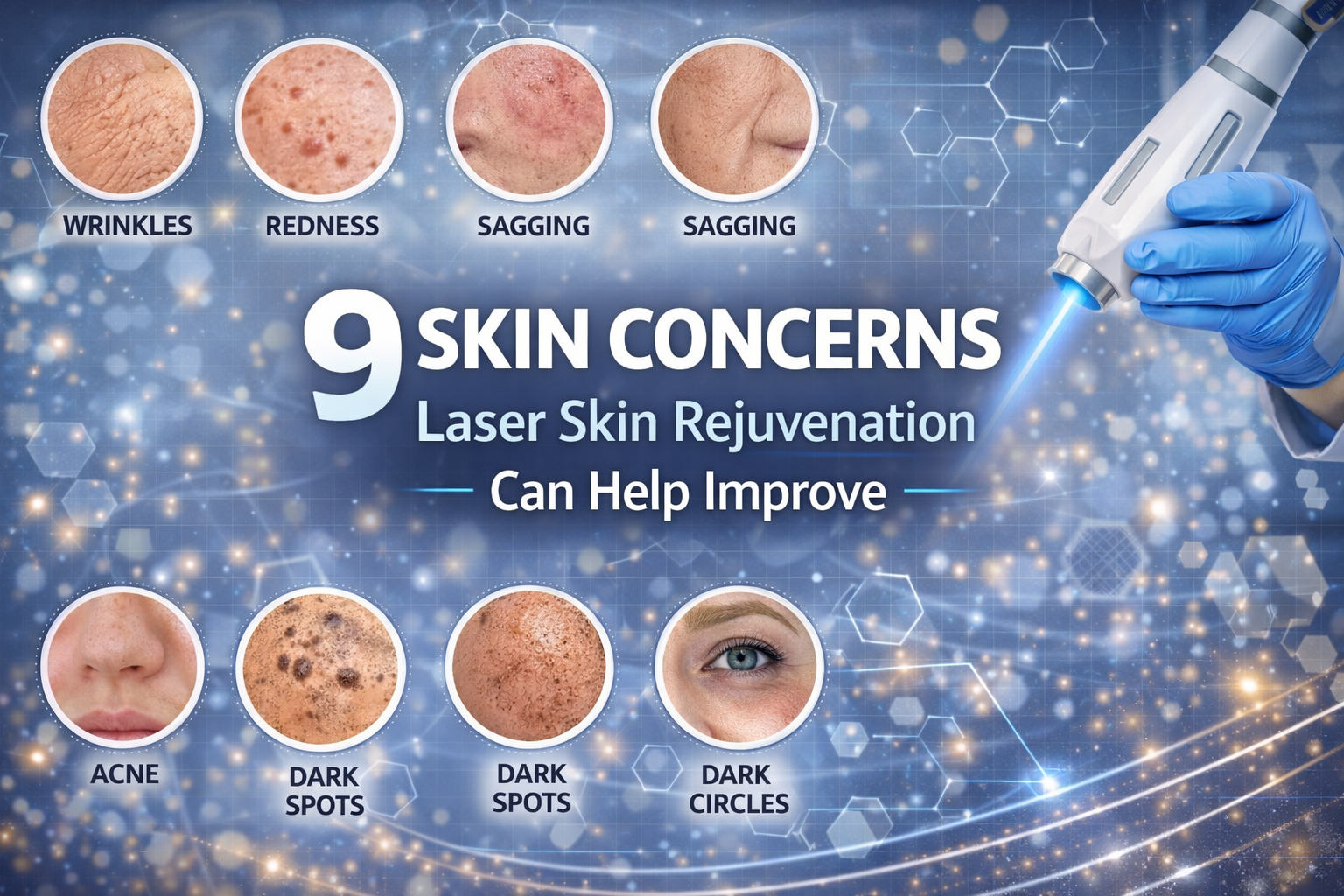Key Hormone Imbalance Symptoms You Shouldn’t Ignore
Hormones act as the body’s internal messengers and guide key functions like energy, mood, sleep, and metabolism. When these messengers become imbalanced, your body sends signals that require attention.
Hormonal shifts affect men and women differently, but many signs overlap. Below, we will discuss the common hormone imbalance symptoms, as well as the gender specific indicators, so you can understand what your body may be trying to tell you.
Common Symptoms of Unbalanced Hormones
Hormone imbalance often shows up through signals that both men and women recognize. We explore the shared signs and help you understand how these changes may reflect shifts in your overall health.
- Unexplained weight changes – sudden weight gain or reduction without dieting or exercising can signal thyroid issues, insulin resistance, or sex hormone instabilities.
- Fatigue – if you’re constantly exhausted, even after a restful sleep, it could be due to thyroid issues, low testosterone levels, or adrenal problems. Medical testing can assist in identifying if there’s a link between your fatigue and hormones.
- Mood swings – progesterone, testosterone, or estrogen imbalance may influence brain chemistry, causing irritability. Cortisol imbalance can also activate anxiety-related symptoms.
- Sleep disturbances – difficulty sleeping may be associated with melatonin or other fluctuations. These disruptions may result in persistent drowsiness throughout the day.
- Hot flushes and night sweats – these symptoms are classic signs of menopause, although they can also be caused by other hormonal disorders in men, too.
- Hair loss - Hair thinning often starts when hormone levels decrease. High androgens like DHT, low estrogen or progesterone, or an off-balance thyroid can all affect your hair. Stress raises cortisol, which can increase shedding and weaken follicles.
- Skin changes – persistent acne may be related to low testosterone, dehyroepiandrosterone (adrenal hormone) or thyroid imbalances.
- Digestive problems - Hormones such as estrogen, progesterone, and cortisol influence digestion for men and women. Shifts in these hormones, especially in women, can trigger digestive issues like bloating, constipation, and irritable bowel syndrome (IBS).
Female-Specific Hormone Imbalance Symptoms
Women experience unique shifts that can affect cycles and mood changes due to hormones. This section focuses on the symptoms linked specifically to female hormone health.
Irregular Menstrual Cycles
Many women experience their monthly cycle like clockwork. Others experience irregular patterns. While delayed or missed periods can occasionally occur, it shouldn’t happen regularly, especially with significant gaps between each cycle. It’s common for women between 40 and 50 entering menopause to experience these symptoms, and they may seek menopause treatment to reduce their discomfort. For younger women, this may be a sign of PCOS and warrants an appointment with the doctor for further assessment.
Vaginal Dryness
While occasional dryness is generally considered normal, low estrogen levels could be the cause of this symptom. This hormonal imbalance can reduce moisture around your vagina, leading to constant discomfort and possible rashes.
Infertility
Hormones guide every stage of female reproduction, especially those controlling the menstrual cycle. They signal egg growth in the ovary, trigger its release into the fallopian tube, and prepare the uterine lining for implantation. One or more missing or imbalanced hormones can disrupt these steps, making conception more difficult.
Signs of Hormonal Imbalance in Men
Male hormones influence, among others, muscle mass, sexual health, and overall well-being. This section highlights the signs that may indicate a hormonal imbalance in men, and when testosterone therapy may be necessary.
Erectile Dysfunction
Hormonal balance is essential for healthy sexual function in men. Testosterone drives libido, sperm production, and overall performance. Low testosterone can cause erectile difficulties, while other hormones like prolactin and thyroid hormones also influence sexual health when they are not balanced.
Loss of Muscle Mass
Loss of muscle mass can signal a hormonal imbalance in men, especially when testosterone levels drop. Testosterone supports muscle growth, strength, and recovery after exercise. When this hormone decreases, men may notice weaker muscles, slower gains despite training, or increased body fat replacing lean tissue.
Other hormones, including growth hormone and thyroid hormones, also influence muscle health. Paying attention to these changes can help men address underlying imbalances early and maintain strength, energy, and overall physical vitality.
Mental Health Effects Linked to Hormonal Changes
Hormones influence not only physical health but also mood, focus, and emotional well-being. When levels change, men and women may notice anxiety or depression. Brain fog and difficulty concentrating may also appear, making even the simplest tasks feel challenging.
Recognizing these changes as potential signs of low hormones can help you take action early. Key hormones like estrogen, progesterone, testosterone, thyroid hormones, and cortisol all impact how the brain regulates emotions and stress. Even slight imbalances can disrupt mental clarity and emotional stability.
Restoring hormonal balance often improves mood and sharpens focus, helping you feel more emotionally grounded, motivated, and clear-headed in your everyday life.
HRT for Men and Women
Hormone replacement therapy helps men and women restore balance when natural hormone levels decline. For women, HRT often targets estrogen and progesterone to ease menopause symptoms, while men may use testosterone therapy to address low energy, low libido, or muscle loss.
We tailor treatment to individual needs, carefully monitoring doses and responses. Beyond relieving physical symptoms, HRT can improve mood, focus, sleep, and overall well-being. When managed correctly, it supports a healthier life for males and females.
Many of our patients choose bioidentical hormone therapy, which uses hormones identical to those produced by the body, offering a natural approach to treatment. Contact us for a tailored plan to balance your hormones and support your health.




